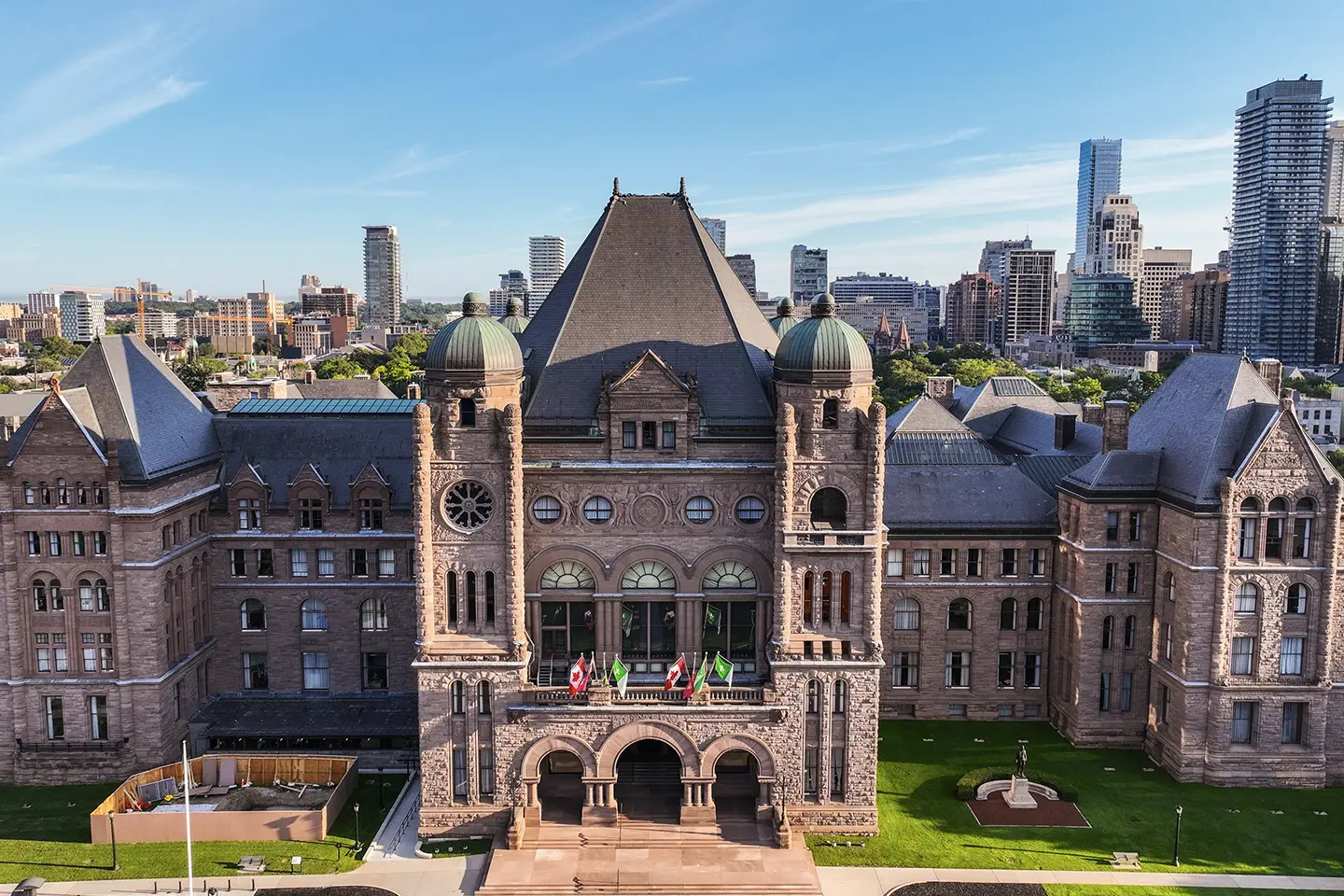#ONelxn2022 Series: The Debate and The Damage Done

Authored by: Brian Zeiler-Kligman, Vice President and Naomi Shuman, Associate
In every election campaign, the leaders’ debate is a focal point, viewed as a potential make-or-break event. Political junkies can recall, with reverence, prior dramatic debate moments like Brian Mulroney in 1984 telling John Turner “You had an option, sir” or Stockwell Day’s hand-written “No 2-Tier Health Care” sign in 2000. Based on moments like these, there is a widely-held belief that leaders’ debates can deliver knock-out blows, cementing – for good or ill – the public’s perception of a leader and their party.
Undoubtedly, there have been Ontario leaders’ debates that have changed the course of elections. In today’s environment though, the game-changing potential of the leader’s debate may be more limited.
The Leaders’ Debate and Analysis
On the evening of Monday, May 16, the second and final Ontario Election leaders’ debate took place, involving PC Leader Doug Ford, NDP Leader Andrea Horwath, Liberal Leader Steven Del Duca and Green Party Leader Mike Schreiner. The good (if cheeky) news: [insert name of preferred party leader here] won the debate. And, in most instances, an argument can be made to justify the previous sentence.
Monday’s leaders’ debate followed the Northern leaders’ debate held in North Bay on May 9. Normally, this debate focuses on issues of importance to Northern Ontario; this time, the leaders debated broader election issues, like COVID-19 management, affordability, transportation infrastructure and housing, resulting in some fiery exchanges. For those keeping track, there was also a French-language debate on Tuesday, May 17. But since none of the party leaders are sufficiently strong in French, the debate took place between party francophone spokespersons.
There were no knock-out blows delivered at Monday night’s debate. The Liberals and NDP both went into the debate hoping to make electoral gains and to use the debate as a turning point in the campaign. The PCs, on the other hand, went into the debate hoping not to offend any of their supporters or change the trajectory of the campaign. And the Green Party was largely happy to finally be a part of the Leaders’ Debate.
With affordability issues dominating voter concerns, all candidates spent time emphasizing how they would make life more affordable for Ontarians: Liberal leader Steven Del Duca publicized the “Ontario Affordability Pledge” he had signed that morning at a campaign event; NDP leader Andrea Horwath focused on her commitment to raise the minimum wage and make gas prices more affordable; PC leader Doug Ford highlighted his gas tax break and scrapping the licence-plate fee.
The exchanges between the leaders did provide some soundbites. For example, there was Mike Schreiner asking Doug Ford “have you talked to a nurse lately?;” Steven Del Duca telling Andrea Horwath that Doug Ford smiles every time she attacks him; Andrea Horwath lamenting the “cuts and chaos” the PCs brought to the education system; and Doug Ford explaining he can work with Mike Schreiner because, implicitly unlike the other leaders, he "is honest and upfront.”
By many accounts, Mike Schreiner was the most effective leader during the debate. He stayed on point with direct responses that contained just enough detail to remain digestible and was authentic. That said, each of the other leaders can find positives from their performances.
The Debate’s Impact
Perhaps acknowledging how 'ordinary‘ Ontarians feel about the debate, in her opening statement Andrea Horwath tried to joke the debate might not be “the most fun thing you’ll do on a Monday night.” While it is possible to make gains during debates, committing a faux pas is the main fear for many party leaders and the reason behind the considerable time spent by candidates and campaign teams prepping for the events.
While many strategists will tell you that debates matter, the reality is that most voters are only going to watch the memorable sound bites that are captured on Twitter or replayed by TV media. Others will just read the media reports on the event, which include both analysis pieces and articles summarizing the top moments.
And these are the interested voters. Likely a plurality of voters will not take note of the debate at all.
What it all Means
It is still early, but some polls are now coming out that surveyed voters after Monday’s debate. By and large, the debate did not move the needle much for any of the parties. That said, the Green Party does seem to be enjoying a bump after the debate. And, while seemingly not much reflected in polling numbers, the debate appears to have spiked voter interest in Liberal leader Steven Del Duca, with Google Trends data showing searches of his name spiked partway through Monday’s debate.
With the Ontario election now less than two weeks away, we expect ad spending and activity by the parties will pick up. The party leaders will start to focus their energy and resources on particular seats they think they have a chance of winning or feel they are at risk of losing.
The campaign is far from over. As is often stated, the only poll that really matters is the one on election day. And all indications are that Monday’s leaders’ debate will ultimately make little difference to that one.


